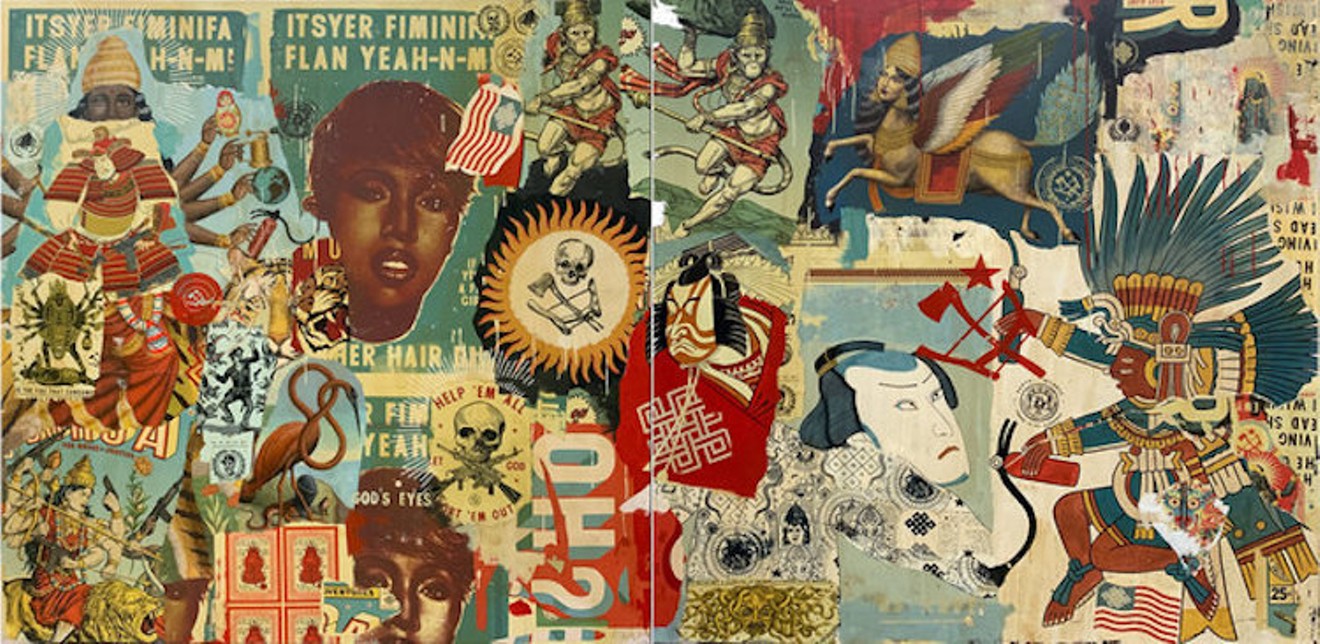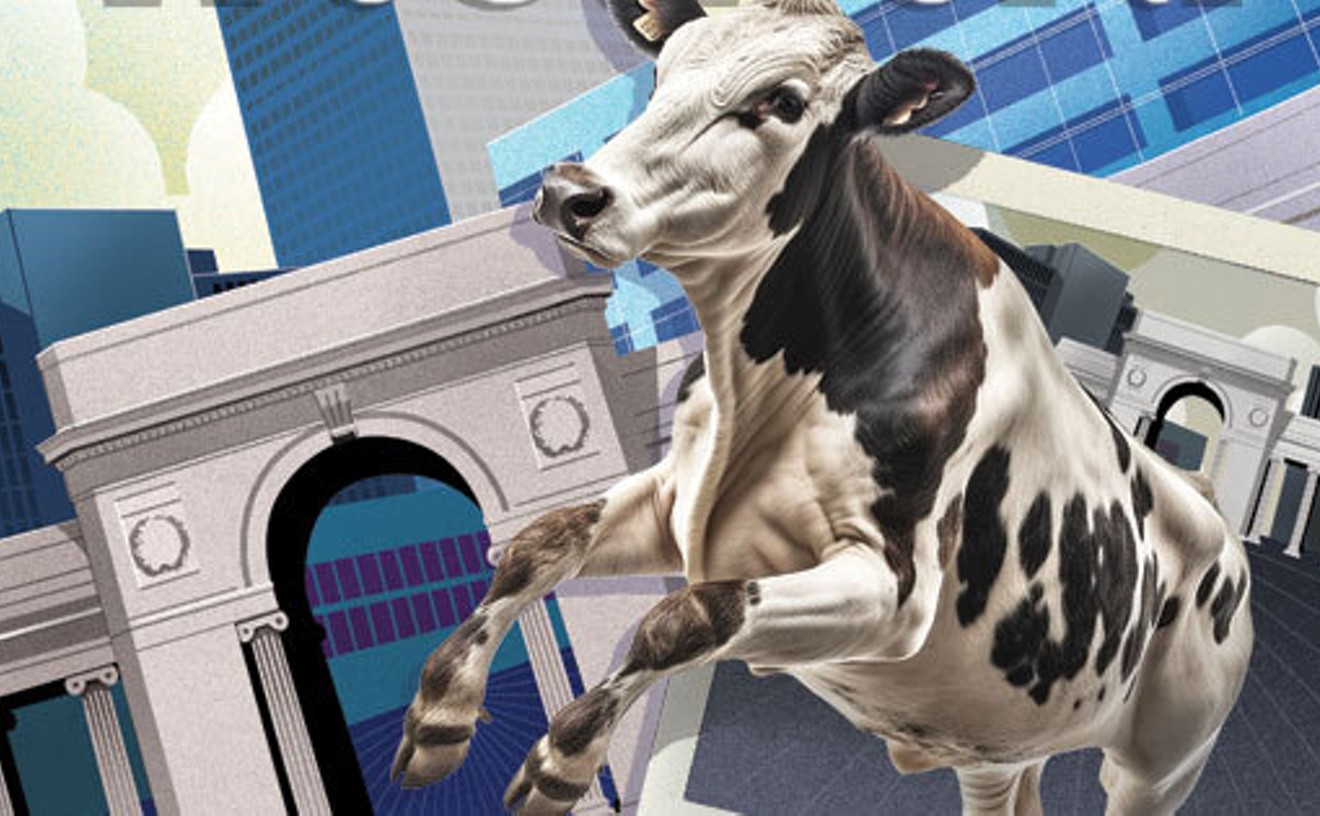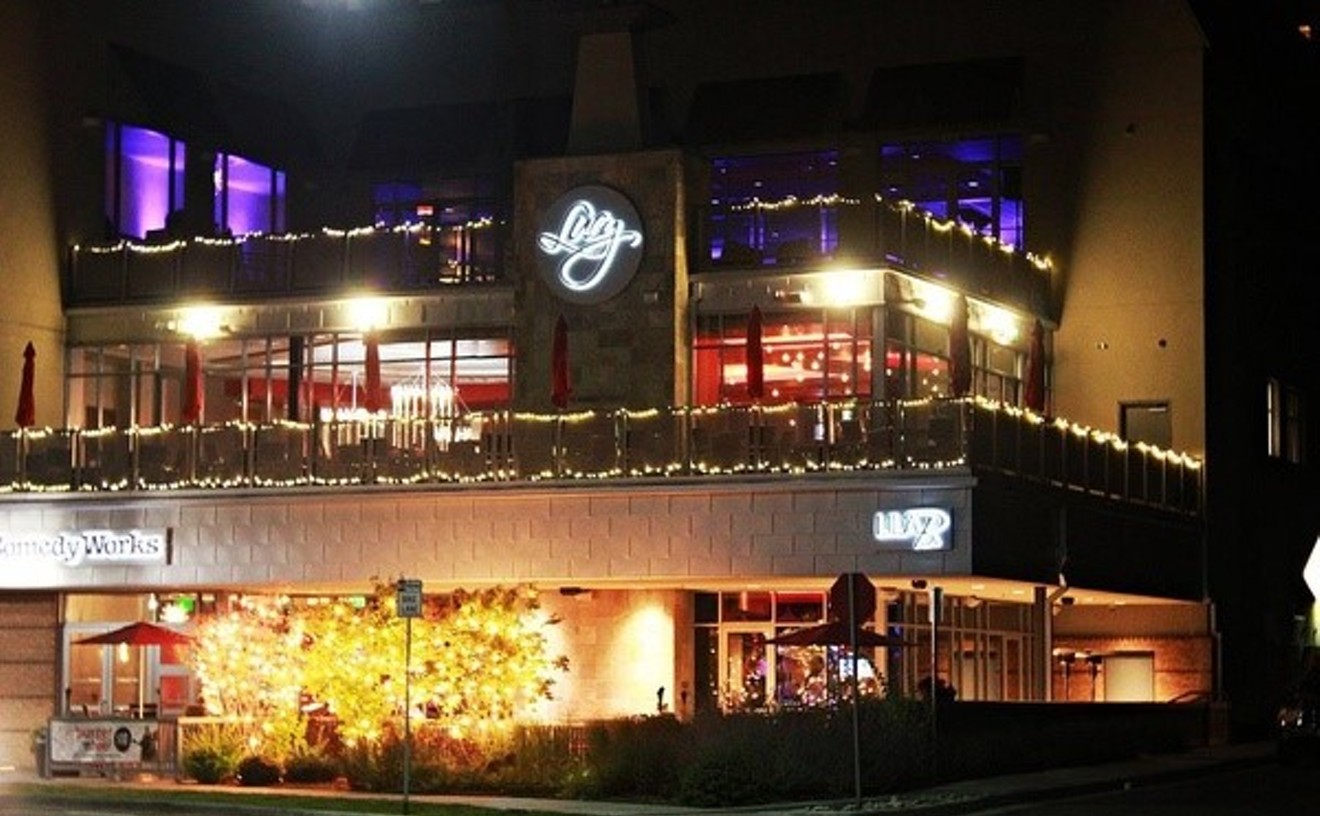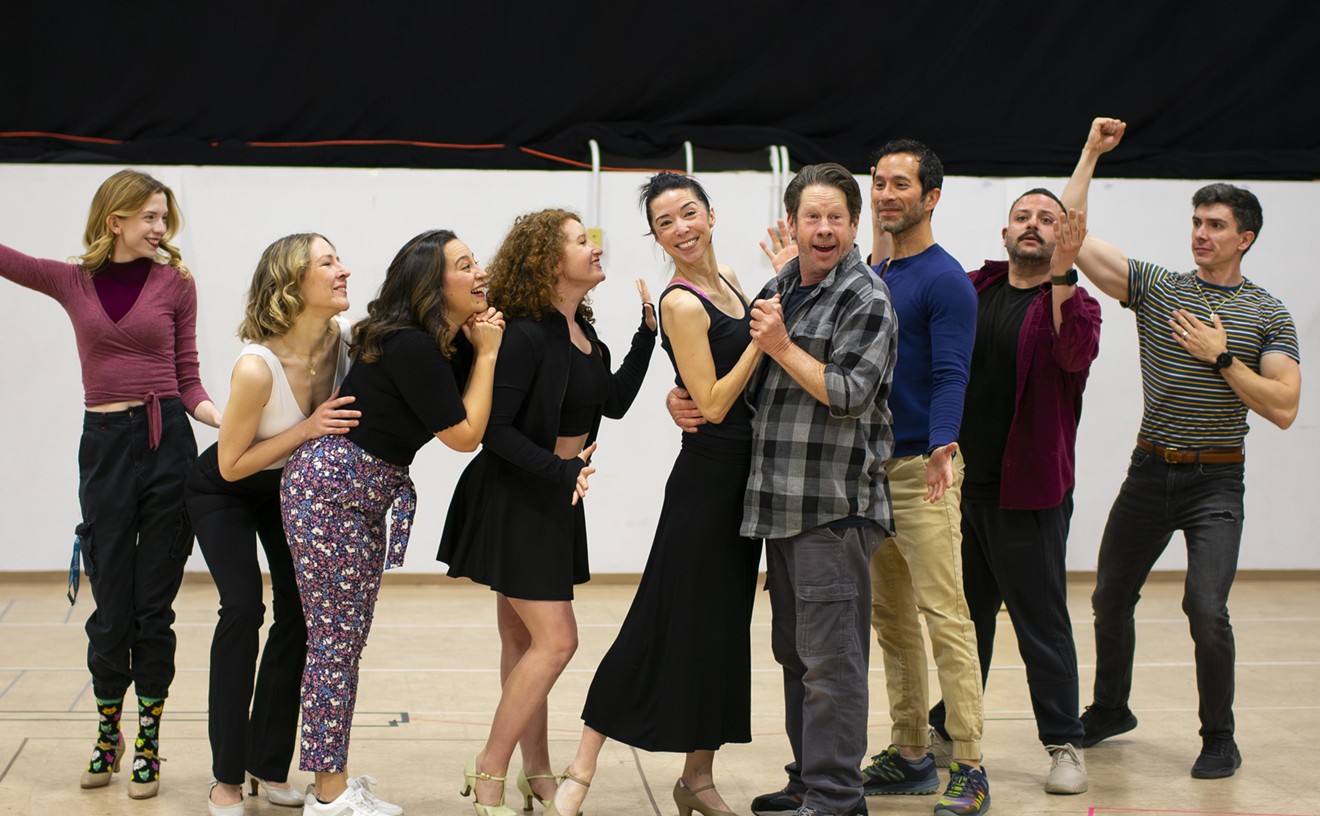Zupa isn’t driven by theory; he’s an artist in the raw, thinking in pictures and sharing those images with a global village of fans around the world.
As he answers the Colorado Creatives questionnaire, Zupa, a Westword MasterMind, spills a few secrets of his success.
Westword: What (or who) is your creative muse?
Ravi Zupa: My muse is art. I love art so much.
What made you pick up a paintbrush in the first place?
I’ve been drawing since I was very young, since before I formed memories. Everyone in my family has always done art — both parents and all my four siblings. It was as ordinary as breakfast in my household.
How are you dealing as an artist with sheltering in place?
For me, things haven’t changed much. I have a big house that is also my studio with a nice big yard. I inherited four ducks and a goose with my property (they're so wonderful). We spend our days making art and rooting around in the mud for insects (respectively).
I’ve spent the last several years building a business infrastructure that lets me sell work online and easily ship to every place in the world. Luckily, I’ve continued to sell prints and drawings for the last few months. I also have a few employees, and that whole arrangement has been disrupted a bit, but we’re managing to keep things moving.
What’s the best thing about the local creative community in your field — and the worst?
The best thing is probably the overall boom that the city is seeing. People are excited about Denver, and the population is growing. This means people are trying a lot of new things. I like the trend of “immersive arts,” even though I haven’t experienced any that I actually enjoyed. I just like that people are trying to pull their heads out of their computers and make cohesive, real-world art pieces that are complex.
I don’t like the frustration that I see in people. It seems like artists want things to be perfect immediately, and want to have a fully formed career the instant they start.
How about globally?
The Internet has brought everyone close together. My employee Jessie and I put a big map of the world on the wall, and it’s littered with red pins for all the places we’ve shipped prints to. You can draw a picture in the morning and show it to thousands of people in the afternoon in Bahrain and Japan and Brazil. Some of them might like it. You can also see what they drew that day.
The worst thing to me is the cynicism of art in general. To a large degree, art in the modern era is characterized by a rebellion against beauty — in a good way. This goes back a long time. When people first saw Monet’s “Water Lilies,” many of them found it unrefined, lazy, offensive. The newer version of that is just as interesting to me. I like the modern work that’s really gross-looking and rough and even disturbing at times. It’s good art. But it lends itself to a much deeper nihilism.
In some ways, the contemporary art culture has come to have contempt for technical realism and facility, for example. Which I can understand: Sometimes realism is worthless, and too much emphasis on it is idiotic. Sometimes the only thing that will get our minds to the destination is something rougher, more abstract, unsophisticated, even revolting. But that doesn’t mean that rough, unsophisticated and revolting art is necessarily valuable. Sometimes I want to tell artists: Just because your piece sucks doesn’t mean it’s good.
It’s a challenging time for artists and creatives in the metro area, who are being priced out of the city by gentrification and rising rents. What can they do about it, short of leaving?
Denver is really “cool” now. For those of us who grew up here, it’s such a striking, unexpected twist to the story. And it’s great! But it comes with unexpected consequences, and being in a hip, desirable place means some sacrifices need to be made. I don’t really know the answer to this: Find where you’re willing to make sacrifices and make them, I guess. But of course, that's always been the case.
I did end up leaving central Denver — that was the sacrifice I chose. I bought a house in Commerce City, largely because it was the only area left where I could afford one. Now I’m in love with where I live! Commerce City is wilderness.
I have all kinds of cultures directly surrounding me. In fact, directly adjacent to my property, I have Mexican-American neighbors, Mexican immigrant neighbors, black Americans, Moroccan immigrants, Sudanese immigrants and white folks. They are all lovely families, and I’m thankful to know them.
What’s your dream project?
I would love to make movies again. I’ve always worked in a lot of media, and my intention is to join all of them and have multiple ways of talking about the same idea. Drawing, painting, sculpture, video. I want to make experiences that incorporate all of these elements. It’s a dream I continue to pursue, and I feel confident that I will make it happen.
I also want to do more writing. For a while I was making short little comparison essays on my website that looked at different art and artists, and I really enjoyed doing that. People were really interested, too.
In a certain way, I'm much better as a thinker than as an artist. I don't mean I'm so brilliant, just that I am oriented inside the realm of thoughts and ideas. And I like to communicate in that way. My art is largely a vehicle for that.
What advice would you give a young hopeful in your field?
I have two pieces of advice. One is very general and obvious. In fact, the “young hopeful” referred to in your question already knows this first one: Work four times harder than you are now. Then repeat.
The other piece of advice is more practical: Try to get rid of art! Get rid of it! If you can’t stand taking a smaller amount for it, think of it in a different way. It might be a wonderful thing, and it's languishing in your basement.
People appreciate you and they want to buy your art. They display your art proudly. That should make you feel proud and grateful to them. Perhaps others will see it.
Make prints. Make small quick drawings to sharpen your skills. Sell these things for a price that ordinary working people can afford. People love you and they want you to succeed.
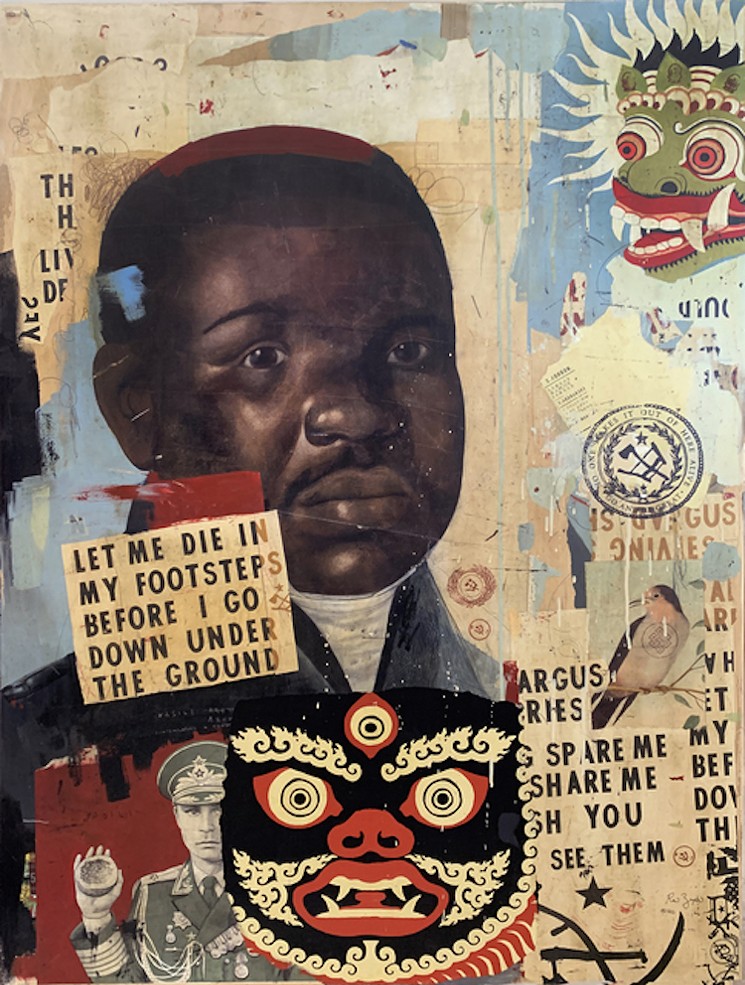
"The main subject of this piece was painted from an old renaissance piece of a dutch emissary to the Congo. I don't know anything about the man, I just loved the painting and wanted to recreate it. If you scroll, you can see the original that I was looking at when I painted it. Also on the piece is a drawing of Vasili Arkhipov, a Soviet submarine captain who, during the Cold War, blocked an order that would have started World War III. The text comes from a Bob Dylan song which lamented the American trend of making home bomb shelters during the Cold War."
Ravi Zupa
I know everyone is working hard right now, and I see the struggle in what they make. This includes bakers, dancers, writers, community organizers, bored thinkers and so on. As far as painters go, I love Julio Alejandro and Diego Rodriguez Warner.
What's on your agenda right now and in the coming year?
I have a second solo show at an art museum in Indiana this summer. I’m really excited about that. Later this year I have another solo show in Montreal. I’ve been licensing some of my work. Look for that. I’m also continuing to make prints and drawings every week — art that responds to the world.
As often as possible, I like to realize new and relevant ideas that talk to our actual current situation. Especially now that we're all stuck inside. People are bored. It's a real problem.

"The horse is inspired by the famous American lithographers Currier and Ives and the flower is painted in the style of Russian lacquer boxes. 'Do not go gentle into that good night' is of course a line from the great Welsh poet, Dylan Thomas. Great advice for these strange times!l"
Ravi Zupa
To be honest, I don’t know what is happening in the local community these days; I’ve been hustling in my own little world for so long. I would say that the person that deserves the most notice is the person who wants to change the environment, to push things further and make more of an impact in a more positive way.
The nihilism that surrounds us is getting so boring. A lot of the new art in the world indulges that boring nihilism, and we need to move on from it. It's true, our world is going to get really strange very soon, and we need to respond to those changes quickly and with humanity.
Follow Ravi Zupa at his website and on Facebook and Instagram.

